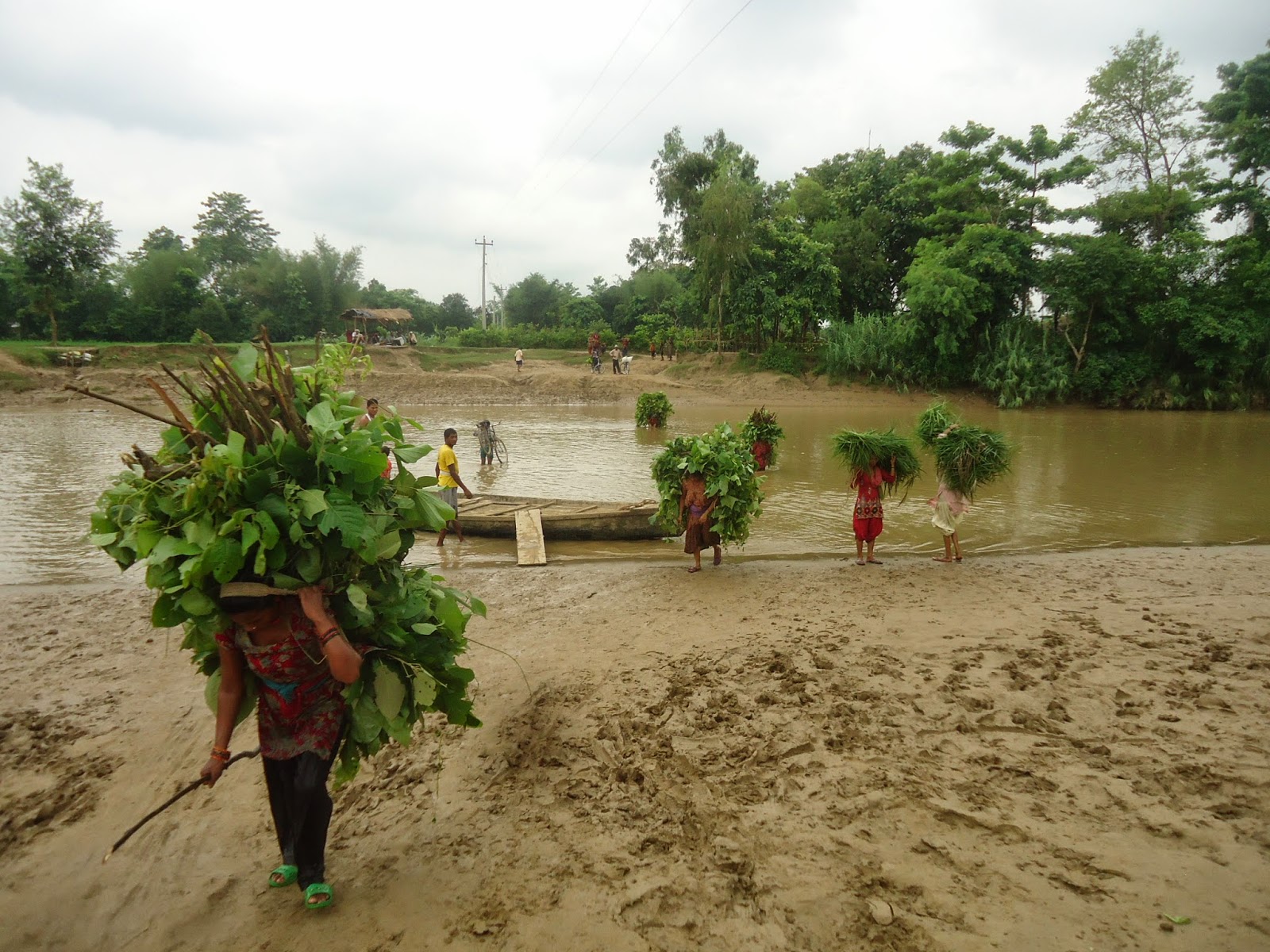On the way to Dhangadi, we stopped at Kailali. This village
was allocated land by the government. They had to leave their old homes because
the river flooded. This land used to be barren. Then NGOs such as CDRA came and
installed many water bores. They were able to irrigate the land and now most of
the land is used for farming. CDRA also purchased many vegetable seeds and
taught the farmers how to plant them. Now the families have rice and veggies to
eat.
The village we went to was pretty far off the main road. We
were on a dirt road for a while that was really muddy and full of potholes. We
had to leave the car behind at one point because it couldn’t cross a river.
After crossing the river via a small boat, we walked for about 20 more minutes
to find a school. The school was funded by CDRA. We were there to check up on
it and deliver a plaque. The old school was nearby. It had tiny tiny windows,
no electricity, and was made of mud and hay. Inside, it was like an oven. It
would be hard to learn in a hot, dark classroom. The newer school is made of
brick and cement. There is electricity and larger windows so learning is more
comfortable. The classrooms are also larger to fit the 175 kids that attend
school there.
 |
| Crossing the river in style |
 |
| Baby bananas |
 |
| Guava plant |
 |
| Inside the new school |
 |
| Donors |
 |
| New School |
 |
| Old school. Tiny windows, small space, no electricity. |
I really liked this village. Even though it was ridiculously
hot, it was very peaceful. The houses were spread out and there were many paths
that motorcycles or bikes could navigate. The people living there were Taru.
Our contact was cha-cha Chaudary. “Cha-cha” means uncle in Taru. We went to his
house and had some snacks.
 |
| Footpaths/Bike trains around the village. Very flat and peaceful |
 |
| Rice, stored in huge mud tubs. |
 |
| The boy is leaning against a large mud tub that they store with rice. It keeps the rice fresh and the bugs out. |
 |
| Rubita, Anup, Rupak sitting on the Taru version of a couch. |
 |
| Ashok with veggies he donated |
 |
| Ashok with more veggies |
After snacks, they showed us a water bore that had been
donated. It took many tries to get the motor started. They had to pour some
water down the pipe in order to get it to start spewing water. Water likes to
stick to itself, so pouring water down the pipe sort of kick-started the process.
The ground water had something to stick to and could more easily climb out. I’m
kind of just making that up, but it makes sense to me. Once the pump got going
there were some coughs of smoke and then a huge gush of water. They just let it
flow into some channels that went out to irrigate the crops. People started
drinking the water and a couple kids took a quick shower.
 |
| Trying to get the water pump to start |
 |
| Taking a quick shower |
 |
| Walking in the rice fields with Rubita, Anup, and Rupak. |



















No comments:
Post a Comment